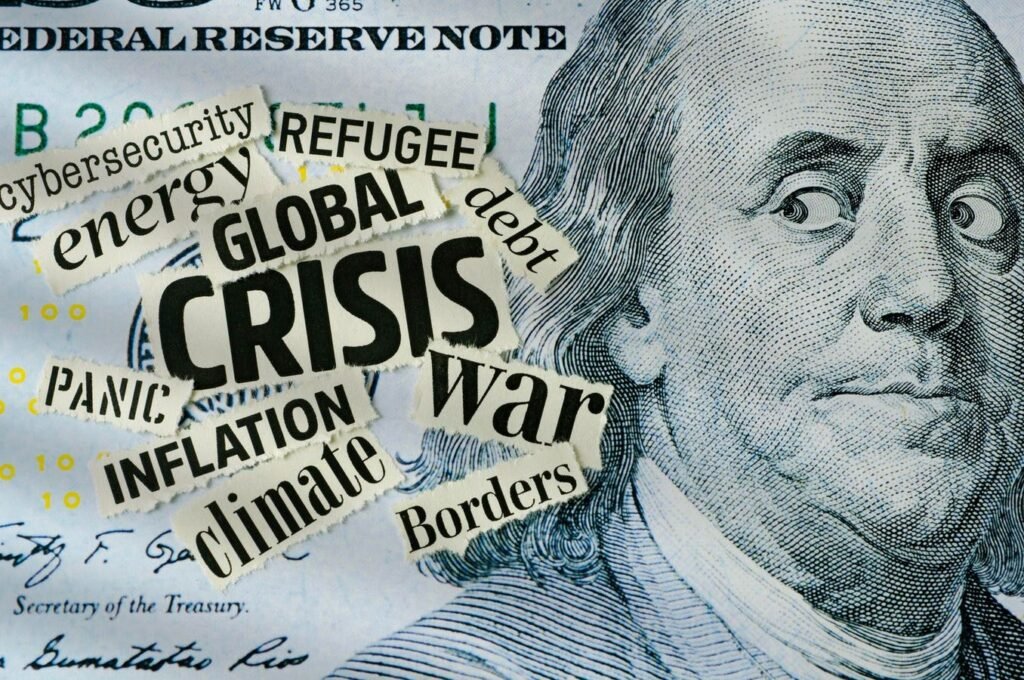Assessing and responding to global political risk is critical to your investments.
Global political events exert a significant influence on financial markets in today’s interconnected world. Ignoring the impact of international politics on your portfolio can be a costly oversight.
Political decisions, geopolitical tensions and global conflicts can dramatically affect market dynamics, affecting investment returns. Understanding how to assess and manage political risk is critical to safeguarding your investments and optimizing returns in an ever-changing global landscape.
The impact of global politics on investment portfolios
Political events, from elections to policy changes, can significantly affect financial markets. These events can alter investor sentiment, regulatory environments and economic forecasts, leading to market volatility.
For example, a new government policy favoring renewable energy sources may boost related stocks, while trade tensions may depress international stocks.
Geopolitical tensions, such as conflicts or diplomatic standoffs, often lead to market volatility. These events can cause commodity prices, such as oil, to fluctuate and affect global supply chains, affecting sectors such as manufacturing and technology.
You can gain information about possible future trends and investment strategies analyzing past market reactions to political events.
Identify political risks and their potential consequences
Political risks in investing include regulatory changes, government instability and policy changes. Identifying these risks and their potential impact on investments involves understanding the immediate and long-term effects of policy decisions on various markets.
Any trade policy decision can have a profound impact. Tariffs, trade agreements or trade tensions with other countries can disrupt global supply chains and affect the profitability of companies engaged in international trade.
Different asset classes they respond differently to political risks. For example, government bonds may react to policy changes, while commodities may be sensitive to trade disputes. Assessing the potential consequences of political risks on specific investments helps create a more resilient portfolio.
Developing a Risk Management Approach
A risk management approach includes a thorough political risk analysis that delves into the political stability, quality of governance and political orientations of the countries in which you hold investments.
It helps predict potential changes in market dynamics and equips you with the foresight needed to adjust your strategies.
Diversification between regions and sectors can mitigate political risks. By spreading investments across regions, asset classes and industries, you can reduce the impact of adverse political events on your portfolio.
Complementing this, hedging strategies such as the use of derivatives can provide insurance against adverse political developments.
Monitor and adjust portfolios in response to global political events
Create a system for monitoring political developments using various sources, including international news, expert analysis and economic indicators. This proactive approach allows for early response to emerging risks.
Responding to political events requires a balance between timely action and careful analysis. You should consider the scale and likely duration of the political event, assessing its short-term and long-term effects.
Adjustments may include reallocating assets, increasing cash holdings, or changing exposure to certain markets or sectors. These decisions should be aligned with your overall investment strategy and risk tolerance.
The case studies
The escalation of the Russia-Ukraine conflict in February 2022 caused a dramatic rise in global oil priceswith WTI crude oil futures reaching $133.46 a barrel and Brent crude reaching $139.13 a barrel on March 7, 2022 – the highest since July 2008. This rise in prices of oil is a stark reminder of how geopolitical tensions can disrupt global markets.
Likewise, Goldman Sachs’ response to these geopolitical changes demonstrates the adaptability of financial institutions. They used a legal loophole in the Biden administration’s sanctions to profit from the Ukraine war by selling Russian debt to US hedge funds.
They acted as middlemen, allowing US investors to buy Russian bonds at a low price and potentially sell them at a higher value later. This approach took advantage of permitted trading of Russian assets in secondary markets, which are not directly linked to sanctioned Russian banks.
More recently, the ongoing conflict between Israel and Gaza has affected investment in a number of ways, with the energy and defense sectors expected to performance ratios amid escalating tensions. Oil market fluctuations reflect different investor reactions to potential supply limits and the global economic slowdown.
Rising geopolitical risks have increased the allure of safe-haven assets such as gold and the US dollar. In addition, the possibility of a recession in the US, influenced by high energy prices and broader economic factors, is leading to a strategic shift towards more stable investments.
Final thoughts
Political decisions, geopolitical tensions and conflicts have the power to dramatically affect financial markets, leading to market volatility and affecting returns. Ignoring this connection can be costly.
To address these challenges, it is important to understand how political events can affect investment. Asset classes respond differently to political risks, making diversification across regions and sectors a fundamental strategy. Using risk management techniques such as political risk analysis and hedging can further protect your investments.
Proactive monitoring of world political events is essential for timely responses. In today’s globalized world, where politics and investment are closely intertwined, investors who recognize and manage political risk are better equipped to deal with uncertainty and optimize their portfolios.
